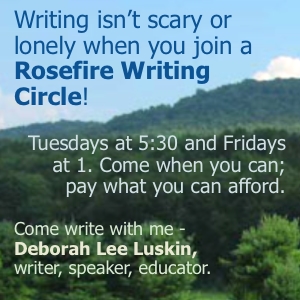Lately I’ve noticed that a great many commentators on television and radio feel obliged to begin every answer to every question with the word “so.” For example, the answer to “What did President Trump mean by his latest tweet?” might be “So, no one knows what is going on in the mind of Donald Trump, but….” The problem with this usage is that it is both unnecessary and incorrect.
There are many correct uses of the word “so.”
“So” can be used as an intensifier with an adjective to emphasize the adjective, as in: “It’s so hot today.”
It can be used to imply summation of a previous argument prior to changing the subject, as in: “So, now that we’ve gone through the instructions for installing a new outlet, let’s review the safety considerations.”
It can be used to imply causation, as in: “The store was out of milk today, so we had to go without.” (We had to go without milk because the store was out of it.)
Finally, the word “so” can be used to signal that the result of an argument is about to be declared, as in: “So, in conclusion, the only sensible option in this case is to call a contractor for help, since we’ve tried everything else.”
However, using “so” all by itself at the beginning of a reply to a question implies none of these things. Rather, it implies that the respondent understands and is prepared to answer the question, which is not one of the approved usages of the word.
To my older ears, beginning every answer with the word “so” sounds juvenile, much like the misuse of the word “like” by my generation. It means nothing in the context used, and can be omitted without any harm to the speaker’s meaning.
Not surprisingly, the biggest offenders in the misuse of the word “so” are young reporters, followed by older reporters who are trying to sound young by using the latest slangy usage. Misuse is one thing, but overuse is another, and we have long since reached that threshold. Listen to NPR on any given day and you’ll see what I mean.
Slangy usage is acceptable when the speaker is not speaking in a professional capacity, but when the speaker is a journalist acting in the role of expert commentator, bad usage only undercuts his or her credibility as an expert. In short, it’s right up there with making your voice go up at the end of every phrase as a signifier of youth (and inexperience).
So, in conclusion, I would like to address journalists directly and ask that you ditch the word “so” in the context described above. You will sound older and more professional if you do, and people like me who find this verbal mannerism annoying will not be distracted from your otherwise knowledgeable responses.







So, like, I feel like
The above irritating words are making me old before my time. Especially the use of “I feel like” when one is expressing a thought. Thoughts are not feelings! Feelings are not thoughts!
Get off my lawn!
One that gets me
The “Democrat” party….
It’s called the Democratic party, and members of it are called Democrats.
This one is especially annoying because it was an intentional effort by the GOP to change the language – I think it was Frank Rich that pushed all Republicans to stop saying the real name, to stop the Democrats from being “Democratic” (which should nice, and fair, and American) to being “Democrat” (which sounds a little rougher). It was a clever move but I never thought it would stick. 20 years later, I hear it far too often from people who should know better.
It is the Republican Party and the Democratic Party, made up of republicans and democrats.
I like words too much to suggest we change the name of the GOP to Republicants, or Republicrats.
I feel like pouring bleach in my ears...
…every time someone uses “I feel like” when they really mean, “I believe ____,” or, “I think ____.”
I’m with ya, Annikee!
Words are important and so is clear language.
If you believe something, or think something, SAY IT. Take up the space you deserve as a human being.
(Does this comment make me look old?)
Inflection can be irritating too
One of the things that crawls up my spine like “The Tingler” is upspeaking. Where every sentence goes up at the end, like a question? And everything said is in a cadence to accommodate that rise at the end? It goes on and on until they’re ready to shut up and finally end what they’re saying with an appropriate fall in voice. I heard it a lot in the Town Meeting yesterday and even though I agreed with the speakers I was ready to scream at them.
Ugh - upspeak
Upspeak? makes everything sound like a question?, which makes the speaker sound very uncertain? about whatever they are talking about?
vs.
Upspeak makes everything sound like a question, which makes the speaker sound very uncertain about whatever they are talking about.
EXcetera
Sorry, just another pet peeve above.
The latest I’ve noticed is the disappearance of the past pluperfect(?) tense. (I don’t know what to call it, but I know it when I hear it, say it.) I have heard many examples by professional, intelligent journalists (TV and print). Here are a couple: “I had SWAM two laps,” He had DRANK two beers,” “She has SANG that song before.”
What happened to SWUM, DRUNK, SUNG et al?
Hear Hear!
And most of the time their throwing “had” in there is incorrect, too! Pick a tense!
Don’t get me started on “me and him” or the wrong uses of “___ and I”- and lately instead of I or me, “myself”. ugh!
More annoyance
I just heard an interview with Terry Gross wherein she stopped the interview to let the guest check phone messages. We listeners all had to wait for someone to check their phone, on-air.
She found it cute that the guest was able to find out about winning an award live during her show.
Hard to believe
I thought the guest’s wife must have just delivered a baby when I heard that. What else could be so important that you have to stop the show? When I realized it was just an award, I was surprised. It was the first time I’d ever heard anything like that on the radio without there being a major provocation such as a Martian attack or the end of a war.
Ads
On a Monday I heard an NPR review of a new TV show. They liked it!
On Tuesday I heard that same TV show “underwrite” a spot during NPR’s news.
agh
Way back, I heard people calling it National Petroleum Radio, because of all the oil sponsorship. But isn’t it illegal to advertise for an underwriter?